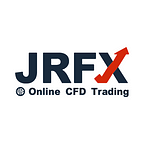Daily Outlook: European Central Bank official Muller said that inflation risks are biased upwards
The leaders of the two parties in the U.S. Congress reached an agreement to raise the debt ceiling to avoid the risk of default:
The two parties in the US Congress broke the deadlock and reached an agreement on a plan to raise the government debt ceiling, avoiding the risk of default. Senate Republican leader Mitch McConnell, who previously vowed not to cooperate with the Democrats in raising the ceiling, said on Tuesday that he and Senate Majority Leader Chuck Schumer reached an agreement on an operating procedure that would allow Democrats to rely solely on party approval. Raise the debt ceiling. “I think this is in the best interest of the country,” McConnell told reporters in Congress. “This is also in the best interest of the Republican Party.”
Yellen: Promoting “Made in America” may require measures similar to trade protectionism:
U.S. Treasury Secretary Janet Yellen said that the United States’ dependence on foreign supply chains has proven to be a vulnerable point. The United States needs to place more production of key products domestically to protect the economy and national security. Yellen stated at an online conference hosted by the Financial Times on Monday that “in order to encourage domestic production activities, it may be necessary to implement policies that are described as protectionism.”
Former Treasury Secretary Summers: The probability of a recession in the United States in the next two years is 40%, and the probability of a soft landing is 20–25%:
Former U.S. Treasury Secretary Larry Summers said that inflation has become entrenched, reducing the possibility that the Fed can contain price increases without causing an economic recession. Summers now predicts that there is a 30% to 40% chance of a recession in the next 24 months. The Harvard University economist also estimated that the probability of a so-called soft landing (that is, tightening monetary policy will not severely curb economic growth) is between 20% and 25%. “There is evidence that in a fast-growing and inflationary economic environment, it is very difficult to achieve a soft landing,” Summers said at the Wall Street Journal’s CEO Council summit on Tuesday.
European Central Bank official Muller said that inflation risks are biased upwards:
In an interview with Reuters, European Central Bank Management Committee member Madis Muller said that long-term inflation risks “have increased overall and tend to go upward.” “We can still say with certainty that the high inflation we see today is mainly driven by temporary factors. But there is a risk that the longer the inflation rate stays at this level, the possibility of a second round of effects. The higher it is.”
Pimco warned that the risk of central bank policy errors has risen, and the bond market has not fully priced the inflation risk premium:
One of the world’s largest bond investors said that the risk of central bank policy errors has increased, but the bond market has not fully reflected the appropriate inflation risk premium. Pacific Investment Management Corporation (Pimco) stated in its asset allocation outlook released on Tuesday that the withdrawal of monetary and fiscal stimulus policies next year and the authorities “trying to let the private sector take over the burden of promoting economic growth” have increased the risk of “policy errors”. The more turbulent macro environment brings the prospect of rising tail risks, which means that investors will face greater positive or negative results.
The U.S. trade deficit in October narrowed for the first time since July, and both imports and exports hit record highs:
The U.S. trade deficit in October narrowed for the first time since July, reflecting the sharp increase in exports and rising foreign demand for U.S. goods. Data released by the US Department of Commerce on Tuesday showed that the trade deficit in goods and services fell by 17% in October to US$67.1 billion, and the deficit in September was US$81.4 billion after revisions. The median forecast of economists surveyed by Bloomberg is a deficit of $66.8 billion.
